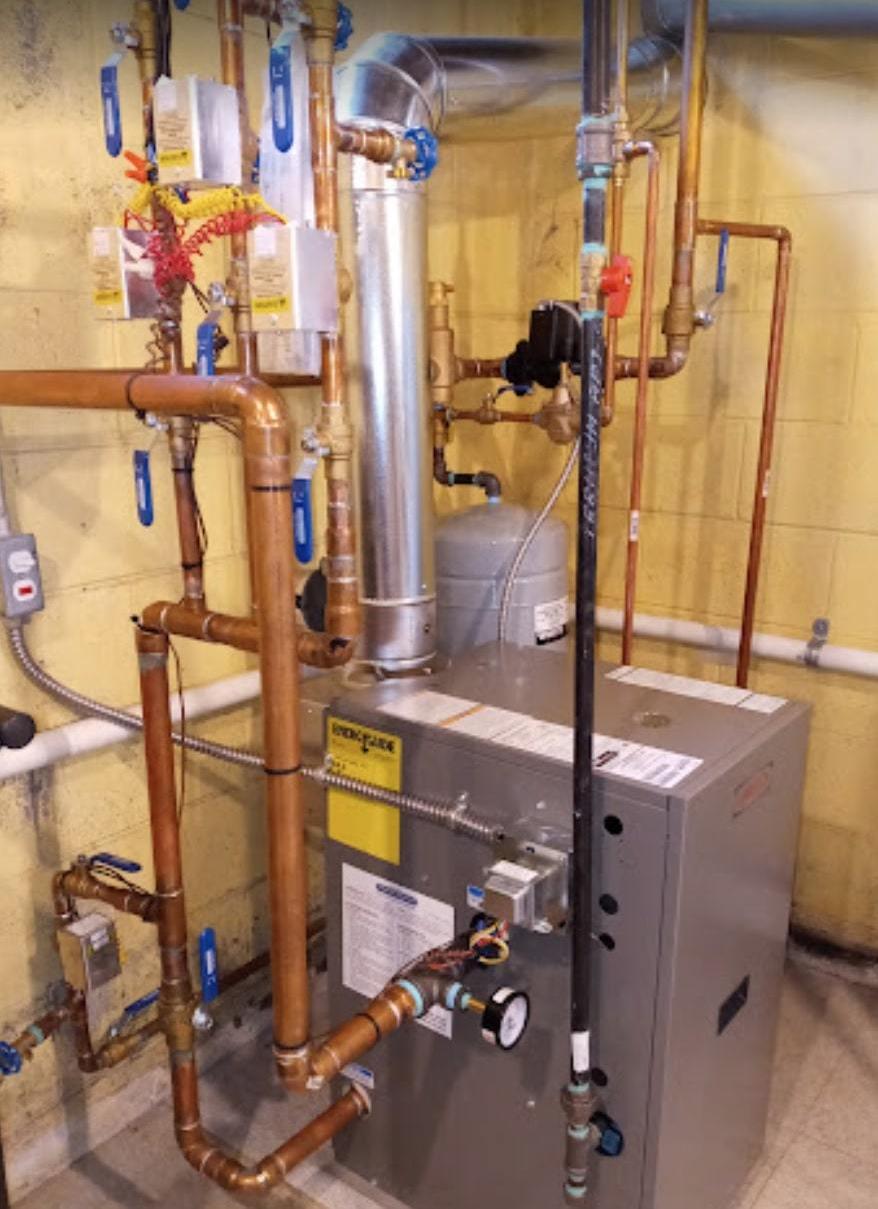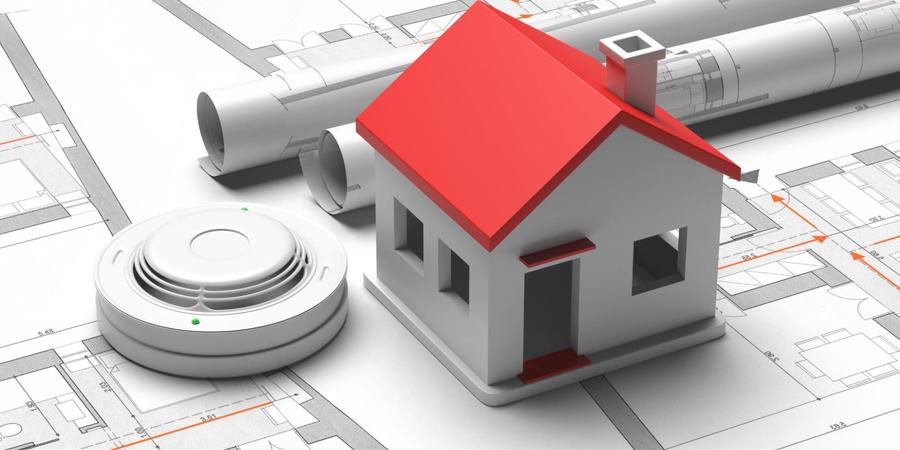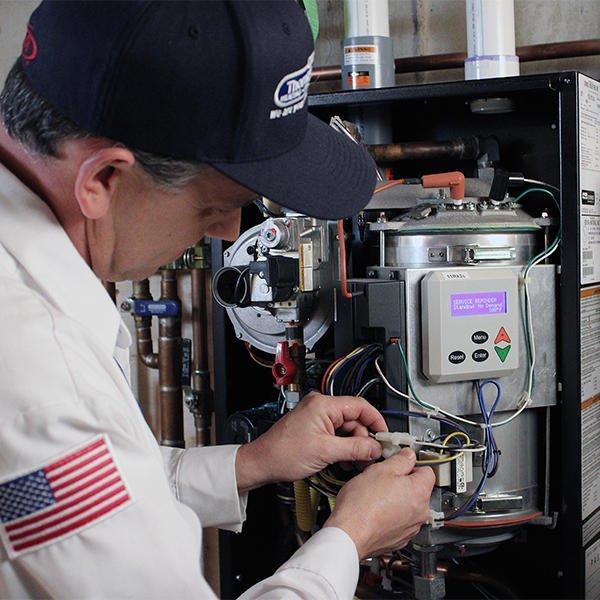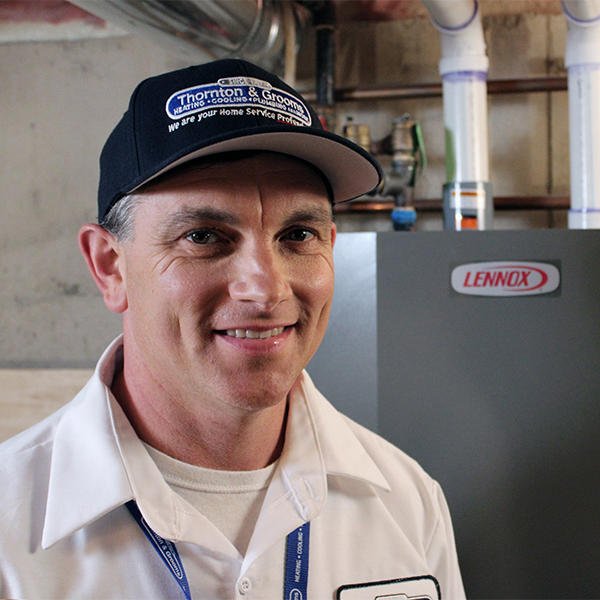Preparing Your Boiler for Winter In Michigan

Ready to prepare your boiler to handle Michigan winters?
Tired of paying too much to heat your home in the winter? Keeping your boiler in peak condition is a great way to cut back on energy usage and extend the life of your heating system. Your boiler needs a little help every year as winter kicks off, so learn how to prepare it for winter.
Following these steps can help you keep your boiler producing optimal levels of heat for decades to come:
- Clean the area around the boiler
- Install a carbon monoxide detector
- Check for problems
- Schedule a boiler tune-up
In this blog, we dig into each step so that you know the why and the how for getting ready.
Want Reliable Heating This Winter?
Give Thornton & Grooms a call at (248) 644-7810 to schedule your annual boiler tune-up service. Our honest and professional technicians perform comprehensive inspections and can usually have your boiler up and running within 24 hours, no matter what's wrong. Schedule with us today to see why we have over seven thousand 5-star reviews!
Clean the Area Around the Boiler
You might have used the area around your boiler during the summer for extra storage space. Before you turn on the heat, it's important to clear out anything that might obstruct access to your boiler. Boxes and other items should be kept several feet away, and pay special attention to the air intake vents.
Anything that blocks airflow makes your boiler work harder to heat your home. Clear space around the intake means your boiler runs more optimally, helping to keep down the energy used to heat your home.
Once you move the larger items, thoroughly cleaning the area is also a good idea. Getting rid of any dust and dirt means less work for the filter in your heating system. Warm soapy water and some elbow grease can do a lot to keep your boiler running well this winter.
If the air intake vent is removable, remove it and soak it in warm, soapy water for around 10 minutes before scrubbing it. Make sure to dry it thoroughly before reinstalling it. Not removable? Use a damp sponge to clean up any loose dirt and debris, then vacuum the vent.
Install a Carbon Monoxide Detector

A carbon monoxide detector in your home helps boiler prep.
One of the biggest risk factors when running your heat is the unintentional buildup of carbon monoxide. This odorless and colorless gas is deadly in high concentrations. While homes with good ventilation may flush out carbon monoxide quickly, lots of air exchanges also mean higher heating costs. Many modern homes are very well-insulated and have limited ventilation.
A carbon monoxide detector is a quick and easy way to determine if there is a problem with your heating system before it affects you or your family.
Before buying new detectors, check your existing smoke alarms to see if they have multiple functions. Some smoke alarms also alert for high carbon monoxide levels. If you already have detectors, double-check the placement to ensure whole-home coverage and give the batteries a test run. The Consumer Product Safety Commission recommends replacing your batteries every year.
Low batteries are one of the most common reasons for detector failure, so when preparing your boiler for winter, take the time to test your safety precautions.
Check for Problems

Schedule a boiler tune-up to make sure to catch any problems.
After everything is clean and ready, it's time to run your last set of checks. Start by firing up the boiler. Let it run for about 15 minutes and see if it starts producing heat.
While it's running, do a thorough inspection to catch any leaks. Look for condensation outside of pipes and pooling water near radiators or the boiler. Check the display panel for possible issues if you don't find any moisture.
Newer boilers may have a digital display that includes an error code function. If your boiler has an error, you can look up the code and start troubleshooting the problem. Sometimes, fixing an error code is as simple as restarting the control panel. After you've gone through the standard troubleshooting for any error code, you might need help from an expert to repair your boiler. But, it's better to know before the cold of winter sets in.
Keep your ears open while testing a system without a display or error codes. Listen closely for any unexpected noises. Banging, clanging, grinding, and other noises can all indicate a problem that needs repair.
Schedule a Boiler Tune-Up with Thornton & Grooms.

Contact Thornton & Grooms for a reliable boiler tune-up in Michigan.
The last step to preparing your boiler for winter is an annual tune-up. At Thornton & Grooms, our boiler maintenance service includes a comprehensive inspection for potential problems. We meet or exceed the service recommendations from the Department of Energy. We look at every system and test the cycle to ensure everything works. Part of the service includes:
- Lubricating all moving parts
- Gas pressure and leak testing
- Electrical connection inspections
- Test on major systems, including the ignition, thermostat, heat pump, safety devices, and more
At Thornton & Grooms, we focus on providing the best possible service backed by our 100% satisfaction guarantee. Look at our thousands of 5-star reviews to see what other satisfied customers say about our service. We're also honest and upfront about when it's time to replace your boiler, so you don't get stuck in a cycle of expensive repairs.
Call us at (248) 644-7810 or click the button below for fast, convenient scheduling and no-surprise pricing.
- Tagged:
- Tips
